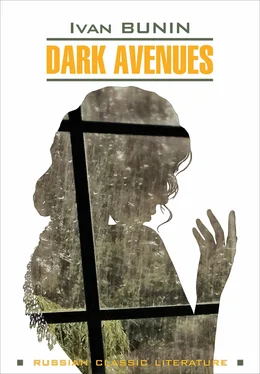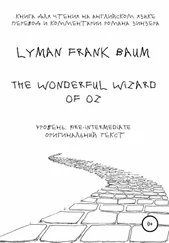In the reception hall something gave a slight crack, then fell with a little thud. Mashenka threw her legs down from the chest and ran into the hall: there was already a smell of burning there from the fallen candle. She put out the still-smoking candlewick, stamped out the smouldering that had started on the nap of a rug and, jumping up onto a chair, relit the candle from the other burning candles stuck into silver sockets beneath the icon, and fitted it into the one from which it had fallen: she turned the bright flame downwards, dripped the wax, which ran like hot honey, into the socket, then inserted it; deftly, with slender figures, she removed the burnt deposit from the other candles, and jumped back down onto the floor.
“My, how cheerfully it’s started gleaming,” she said, crossing herself and gazing at the revived gold of the candle lights. “And what a smell of the church there is now!”
There was the smell of sweet fumes, the little lights trembled, from behind them the ancient face of the icon gazed from a blank circle in its silver setting. In the upper, clear panes of the windows, which were frosted over at the bottom with thick, grey rime, the night was black, and white nearby in the front garden were the ends of boughs burdened with layers of snow. Mashenka looked at them too, crossed herself once more and came back into the hallway.
“It’s time for you to sleep, sir,” she said, sitting down on the chest and stifling her yawns, covering her mouth with her withered little hand. “The night’s grown menacing now.”
“Why menacing?”
“Because it’s mysterious, when only the chanticleer, the cockerel, as we call it, and the night crow, the owl, can stay awake. Then the Lord Himself listens to the earth, the most important stars begin to twinkle, the ice holes freeze in seas and rivers.”
“And why is it you yourself don’t sleep at night?”
“I sleep as much as is needed as well, sir. Is an old person meant to have a lot of sleep? Like a bird on a branch.”
“Well, go to bed, only finish telling me about that wolf.”
“But you know, it’s a dark business, long ago, sir – perhaps a ballad.”
“What’s that you said?”
“A ballad, sir. That’s what all our masters used to say, they liked reading those ballads. Sometimes I’d be listening and there’d be a tingling on my head:
Howls the cold wind o’er the mountain,
Whirls in white the pasture,
Comes foul weather and the blizzard,
Buried deep’s the highway [28] Howls the cold wind… the highway : A slightly inaccurate quotation from a poem by Alexei Fyodorovich Merzlyakov (1778–1830), “Black of brow and black of eye” (1803), set to music by D.N. Kashin (1769–1841). (прим. перев.) Воет сыр-бор за горою,/ Метет в белом поле, (Метелица в поле (у А.Ф. Мерзлякова)) / Стала (Встала) вьюга-непогода,/ Запала дорога…
“How beautiful, Lord!”
“What’s beautiful about it, Mashenka?”
“What’s beautiful about it, sir, is you don’t know what it is that’s beautiful. It’s scary.”
“In the old days, Mashenka, everything was scary.”
“How can I put it, sir? Perhaps it’s true that it was scary, but it all seems dear to me now. I mean, when was it? Just so long ago – all the kingdoms have gone, all the oaks have crumbled from old age, all the graves are level with the earth. Now this story too – among the menials it used to be told word for word, but is it the truth? The story was supposed to have happened still in the time of the great Tsarina, [29] in the time of the great Tsarina : Catherine the Great (1729–96) ruled Russia after her husband, Peter III, was deposed and killed in 1762. (прим. перев.)
and the reason why the prince was sitting in Krutiye Gory was supposed to be that she’d grown angry with him over something, had shut him up a long way away from her, and he’d become really fierce – most of all in the punishment of his serfs and in fornication. He was still very much in his prime, and as for his appearance, wonderfully handsome, and both among his menials and throughout his villages there wasn’t supposed to be a single girl he hadn’t demanded come to him, to his seraglio, for her wedding night. So he went and fell into the most terrible sin: he was even tempted by his own son’s new bride. The son was in St Petersburg in the military service of the Tsarina, and when he’d found himself his intended, he got permission for the marriage from his father and married, and so then he came with his new bride to pay his respects to him, to that there Krutiye Gory. And the father goes and falls for her [30] to fall for smb – почувствовать влечение к кому-либо
. Not for nothing [31] Not for nothing – Недаром
, sir, is it sung about love:
Love’s fires rage in ev’ry kingdom,
People love all round the globe… [32] Love’s fires rage… all round the globe : The closing lines of the poem ‘If young women, mistresses’ (published 1781) by Alexander Petrovich Sumarokov (1717–77). (прим. перев.) Жар любви во всяком царстве,/ Любится земной весь круг…
And however can it be a sin, when even an old man’s thinking about his beloved, sighing over her? But here, after all, it was a completely different matter, here it was like it was his own daughter, and he’d stretched his grasping intentions to fornication.”
“And so what happened?”
“Well, sir, the young prince, remarking this parental design, decided to flee in secret. He put the stablemen up to it, gave them all sorts of presents, ordered them to harness up a good quick troika for midnight, stole out from his own family home as soon as the old prince had fallen asleep, led out his young wife – and he was off. Only the old prince wasn’t even thinking of sleeping: he’d already found everything out that evening from his informers and straight away gave chase. Night-time, an unspeakable frost, so there’s even rings lying round the moon, snows in the steppe deeper than the height of a man, but it’s all nothing to him: he flies along on his steed, sabres and pistols hanging all over him, beside his favourite whipper-in, and already he can see the troika with his son up ahead. He cries out like an eagle: stop, or I’ll shoot! But they don’t pay any heed [33] to pay heed – обращать внимание
there, they drive the troika on at full blazing speed. Then the old prince began shooting at the horses, and killed as he rode first the one outrunner, the right-hand one, as it ran, then the other, the left-hand one, and already he meant to lay low the shaft horse, but he glanced to the side and sees rushing at him across the snow, beneath the moon, a great, fantastic wolf with eyes red like fire and with an aureole around its head! The prince set about firing at it too, but it didn’t even bat an eyelid [34] not to bat an eyelid – глазом не моргнуть
: rushed at the prince like a whirlwind, jumped onto his chest – and in a single instant slashed through his Adam’s apple [35] Adam’s apple – кадык
with its fang.”
“Ah, what horrors, Mashenka,” I said. “Truly, a ballad!”
“It’s a sin to mock, sir,” she replied. “God’s world is full of wonders.”
“I don’t disagree, Mashenka. Only it’s strange, nonetheless, that this wolf has been painted right beside the tomb of the prince it slaughtered.”
“It was painted, sir, as the prince himself wished; he was brought home still alive, and he had the time before dying to make his confession and take communion [36] to take communion – причащаться
, and in his final moment he ordered that wolf to be painted in the church above his tomb – as a lesson, then, for all the prince’s descendants. Who could possibly have disobeyed him in those days? And the church was his domestic one too, built by him himself.”
Читать дальше












